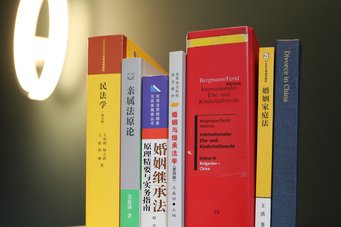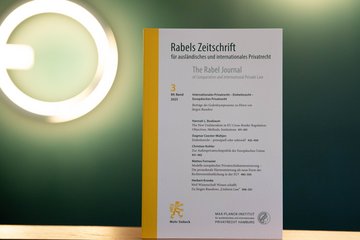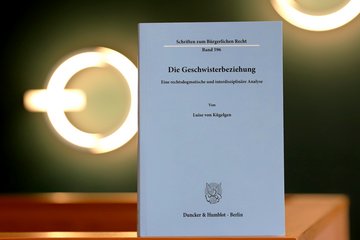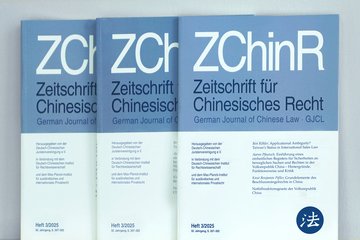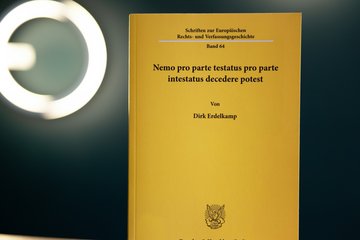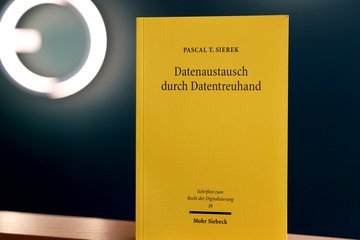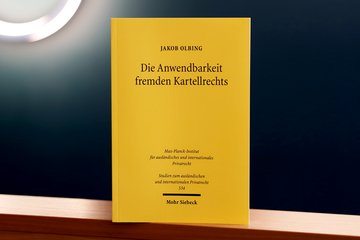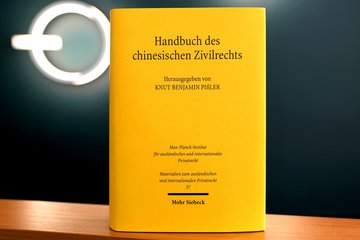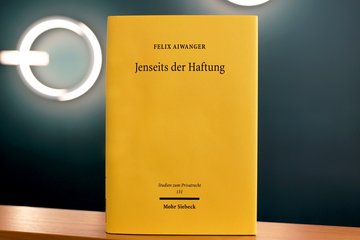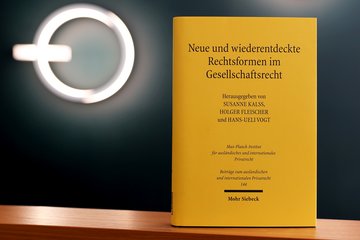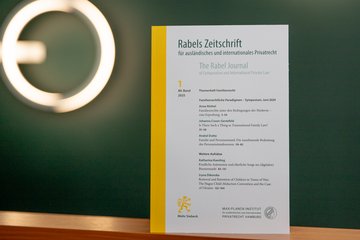Chinese Family Law under the New Civil Code
Knut Benjamin Pißler, who heads the Centre of Expertise on China and Korea at the Max Planck Institute for Comparative and International Private Law, and family law judge Thomas von Hippel of the Amtsgericht of Hamburg-Altona, have co-authored a comprehensive new revision of the country report for China of the standard reference work Internationales Ehe- und Kindschaftsrecht mit Staatsangehörigkeitsrecht (International marriage and filiation law including nationality law). The revision is a major update that includes the reforms enacted with the Chinese Civil Code, which entered into force on 1 January 2021.
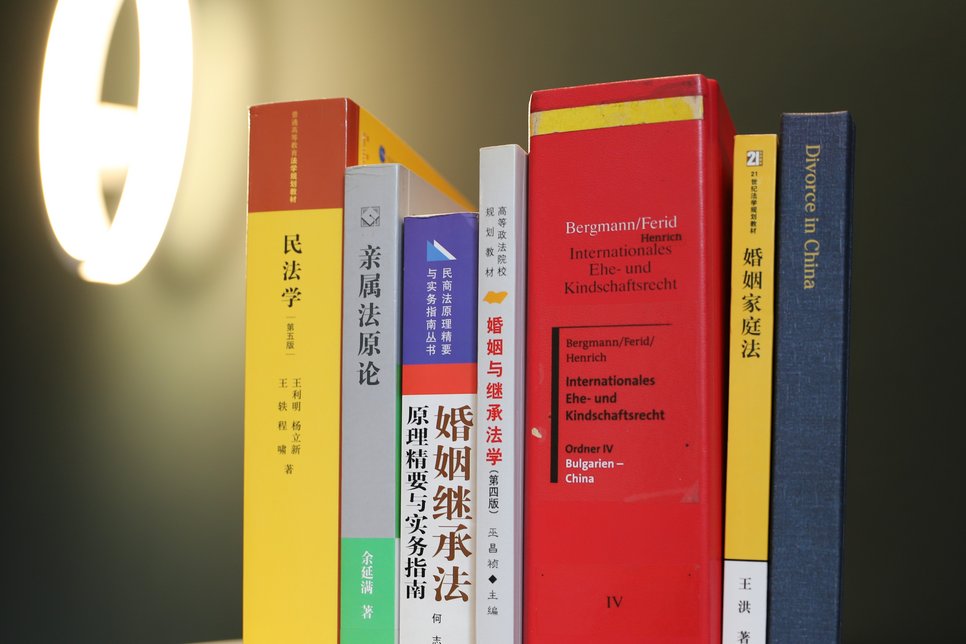
The distinctive historical and cultural aspects of Chinese family law make this an intriguing area of study in its own right. But this area of law also has practical significance for civil litigation in Germany: whereas commercial disputes connected to China almost always are solved by arbitration, German courts are often seized of family and succession law cases with issues that occasionally turn wholly or in part on Chinese private law. Pißler and von Hippel’s report – a systematic account of the new Chinese Civil Code’s provisions on marriage and marital property law, divorce and its financial consequences, and filiation and law on names – enables German judges to render decisions in cases where the rules of private international law point toward application of the substantive law of China.
The authors illuminate that the new law also reflects the changed living and working conditions that have come apace of China’s transition from a traditional socialist to a market-oriented economic system. For example, regulations have burgeoned in recent decades around how a couple’s assets are to be divided in a divorce.
The Civil Code contains the first-ever codification of the law of filiation, establishing a cause of action by which either parent can contest or seek a determination of the fatherhood of a child.
Moreover, the Civil Code embodies an endeavour to introduce a series of new (and from a comparative law standpoint, innovative) norms into Chinese law. Among these, and peculiar to Chinese law, is an equitable distribution mechanism that operates alongside the division of marital assets in a divorce; its purpose is to allow unremunerated domestic labour to be rewarded after the fact. Another new development is a statutory duty which makes it incumbent upon grown children to maintain contact with their elderly parents.
Dieter Henrich, Alexander Bergmann, Murad Ferid, Anatol Dutta, Hans-Georg Ebert (eds.), Internationales Ehe- und Kindschaftsrecht mit Staatsangehörigkeitsrecht (International marriage and filiation law including nationality law), 246. Lf., Verlag für Standesamtswesen, Frankfurt am Main 2022.
Image: © Max Planck Institute for Comparative and International Private Law / Ana Karolina Wolf
